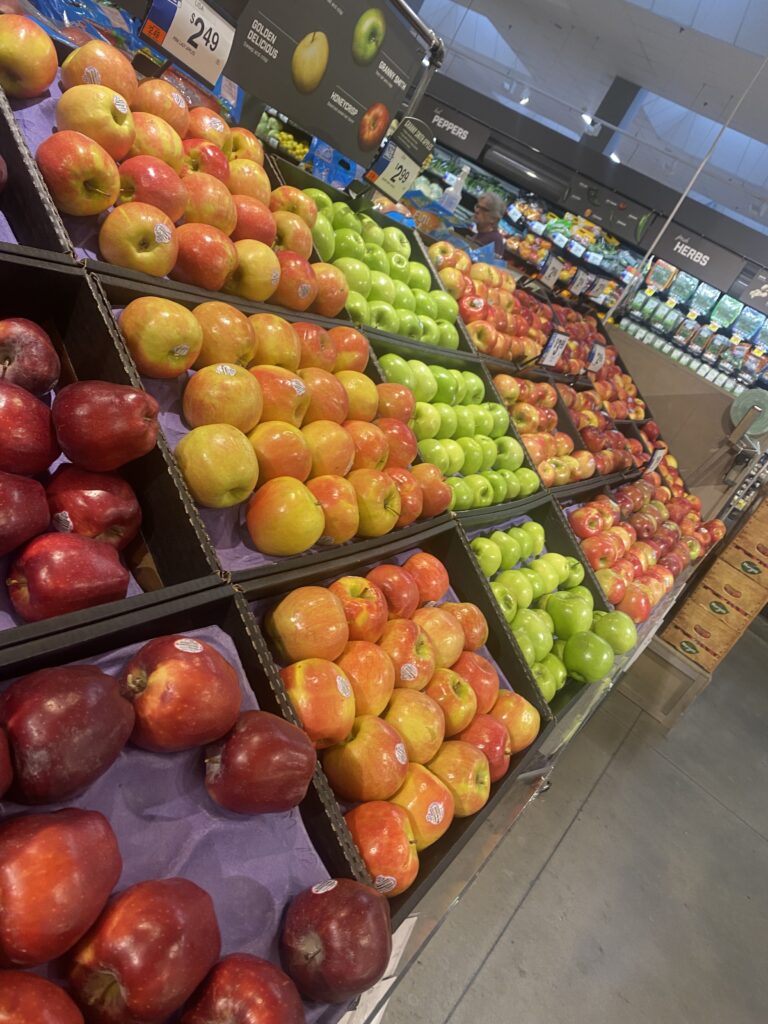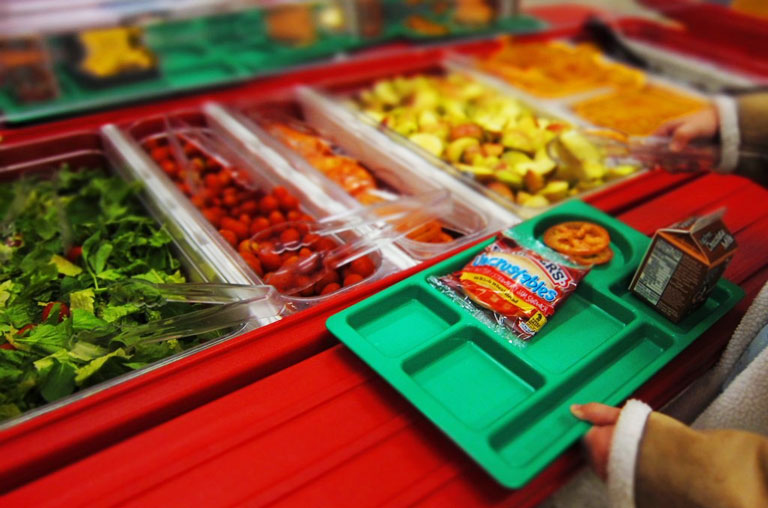Move over cherry trees, there’s a new orchard in town.
On 2.75 acres in Beltsville, Md., just 30 minutes from D.C., the City Orchard is taking root with 1,000 trees and bushes planted to support the Bread for the City’s food pantry.
Serving 5,000 households a month, the organization operates the largest food pantry in the District.
“We haven’t found a model in the United States like this project that directly provides food to food pantries,” said Ryan Hill, associate director of development at Bread for the City. “At least nothing on this scale of an orchard that will produce thousands upon thousands of pounds of food.”
When the trees and bushes mature, City Orhard is expected to yield 40,000 pounds of fruit annually, Hill said.
Bread for the City staff and volunteers gathered March 25, and again April 14 and 15, to plant the apple, Asian pear and persimmon trees, as well as the blueberry and blackberry bushes.
Harvesting a variety of fruits and vegetables means the food pantry will be stocked for the entire span of the growing season, which runs from June through October. The specific plants were chosen because of their ability to thrive in D.C.’s climate.
Planning an orchard from the ground up is not an easy task. Bread for the City teamed up with Casey Trees, a charitable organization that works to protect Washington’s tree canopy. Casey Trees assisted with training planting volunteers, as well as equipping Jeffrey Wankel, food projects specialist and project manager for City Orchard, with the tools and experience needed to run an orchard.
Growing its own produce allows Bread for the City to offer expensive items at lower costs to families in the District, helping to keep groceries affordable despite fluctuations in food prices.
“Blueberries can be $4 a pint. It’s thrilling for us to be able to provide that luxury to our clients,” said Sharon Feuer Gruber, nutrition consultant and co-conceiver of the orchard project.
Healthy food selections may often cost more than household budgets allow, said Hill, recalling an eight-year-old who had never seen a strawberry before.
“We are able to provide access to fruit they’ve never had,” Hill said. “If you can’t afford it at the grocery store, where are you getting it?”
Learning to enjoy healthy food is just the beginning of a healthy lifestyle. Living in an urban environment can also deprive residents of the experience of fresh air and open skies. The orchard gives clients of Bread for the City a taste of a different world, something beyond “the day-to-day concreteness,” where they can find peace with nature, Hill said.
The trees and bushes will be matured and ready to harvest by 2014. The first 12 to 18 months do not require much upkeep outside of getting the trees to grow.
“Almost all of the work is front-loaded. The hard part is getting the plants in the ground and getting them to start growing,” Wankel said. Our goal is to have the most organic orchard possible.”
Now that City Orchard is planted, Bread for the City is requesting that people “adopt” a tree for $35. That amount provides for one year of upkeep, which will help maintain the orchard beyond the start-up cost.
City Orchard operates in conjunction with Bread for the City’s 3,500 square-foot rooftop garden. Organizers see both projects as integral to the organization’s main goal.
“Bread for the City helps people by showing them dignity and respect,” Gruber said.
For more information about adopting a tree at City Orchard, visit donate.breadforthecity.org/orchardblog2.








